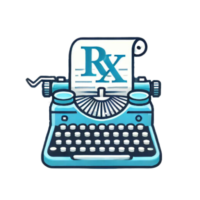Drug shortages are a growing challenge for healthcare systems globally, disrupting patient care and treatment outcomes. Pharmacists play a pivotal role in navigating these shortages, ensuring patients receive safe and effective alternatives, and promptly. This guide explores the causes of drug shortages, the critical responsibilities of pharmacists, and actionable strategies to mitigate these challenges.
Understanding Drug Shortages
Causes and Current State of Medication Shortages
Several factors contribute to ongoing drug shortages, including:
- Manufacturing Issues: Quality problems, production delays, or facility closures.
- Supply Chain Disruptions: Natural disasters, pandemics, or geopolitical events impacting supply chains.
- Economic Factors: Low profitability can lead manufacturers to discontinue products.
- Increased Demand: Sudden spikes in medication usage that outpace supply availability.
Impact on Patient Care
Drug shortages significantly affect patient care and healthcare systems:
- Treatment Delays: Patients may experience postponed care due to unavailable medications.
- Medication Errors: Substitutions can lead to dosing errors or adverse reactions.
- Increased Costs: Alternatives are often more expensive, straining healthcare budgets.
Below are some of the most impactful shortages in the market from recent news:
| Medication | Condition Treated | Details | Source |
| Tirzepatide (Zepbound, Mounjaro) | Weight loss and Type 2 diabetes | The FDA has declared the shortage resolved, impacting the production of compounded versions. | Reuters |
| ADHD Medications (e.g., Methylphenidate) | Attention Deficit Hyperactivity Disorder (ADHD) | Global shortages are leading patients to ration doses, affecting treatment efficacy. | The Times |
| Semaglutide (Wegovy, Ozempic) | Weight loss and Type 2 diabetes | Ongoing shortages due to high demand; Novo Nordisk is acquiring manufacturing sites to address supply issues. | Barron’s |
Pharmacists’ Responsibilities in Drug Shortages
Identifying Alternative Therapies
Pharmacists play a critical role in finding suitable replacements for unavailable medications:
- Therapeutic Equivalents: Identifying medications with similar efficacy and safety.
- Compounding Solutions: Preparing in-house alternatives when commercial options are unavailable.
- Collaboration with Providers: Working with prescribers to adjust treatment plans as necessary.
Communicating with Healthcare Providers and Patients
Pharmacists serve as essential communicators during shortages:
- Informing Medical Teams: Keeping providers updated on shortages and available alternatives.
- Patient Counseling: Explaining medication changes and addressing concerns to ensure adherence.
- Documentation: Recording substitutions and monitoring outcomes for future reference.
Strategies for Mitigating Drug Shortages
Inventory Management Practices
Proactive inventory practices can mitigate the impact of shortages:
- Stock Monitoring: Regular reviews of inventory levels and expiration dates.
- Conservation Measures: Prioritizing medication use for patients in greatest need.
- Advance Planning: Predicting shortages based on market trends and manufacturer notifications.
Collaborating with Suppliers and Manufacturers
Building strong relationships with suppliers is critical:
- Direct Communication: Maintaining contact for timely updates on supply status.
- Alternative Sourcing: Identifying additional suppliers to secure necessary medications.
- Advocacy: Collaborating with professional organizations to address systemic issues.
Regulatory and Ethical Considerations
Pharmacists must navigate regulations and ethical challenges:
- Reporting Shortages: Notify agencies like the FDA to enhance transparency and coordination.
- Ensuring Equitable Distribution: Develop policies to fairly allocate limited supplies.
Future Outlook for Managing Drug Shortages
Predicting and Preventing Shortages
Proactive steps are essential for minimizing future shortages:
- Data Analytics: Leveraging technology to forecast demand and potential supply gaps.
- Policy Initiatives: Supporting legislation that strengthens supply chain resilience.
- Global Collaboration: Participating in international efforts to stabilize medication supplies.
Role of Technology in Shortage Management
Advanced technologies can enhance drug shortage management:
- Inventory Management Systems: Optimize stock levels with real-time monitoring.
- Automated Alerts: Notify pharmacies of low inventory or supplier disruptions.
- Blockchain Technology: Improve supply chain transparency and traceability.
Conclusion
Pharmacists are on the front lines of managing drug shortages, ensuring continuity of care through alternative therapies, communication, and ethical practices. By implementing proactive strategies, leveraging technology, and advocating for policy changes, pharmacists help mitigate the impact of shortages on patient health. Looking forward, predictive analytics and global collaboration will be critical in stabilizing medication supplies.







